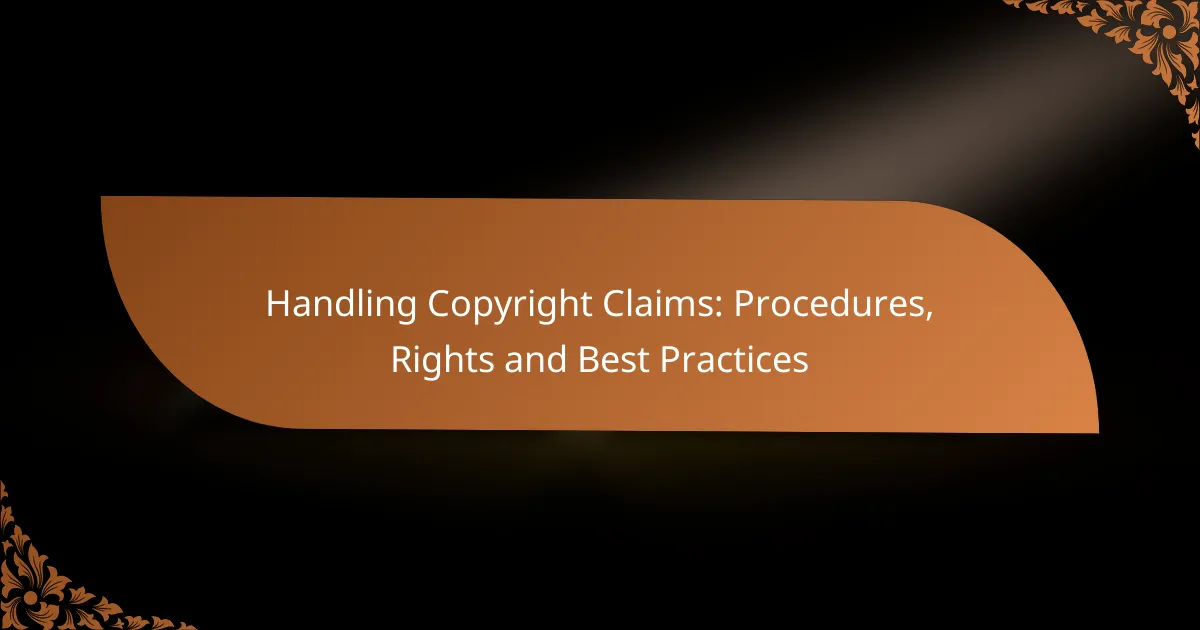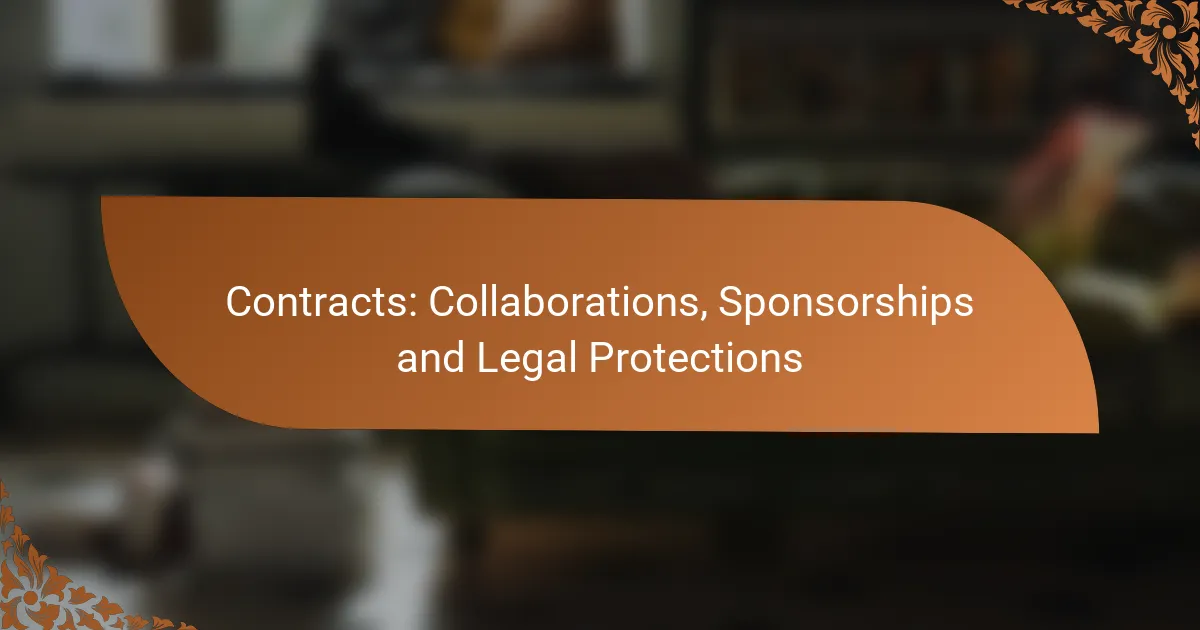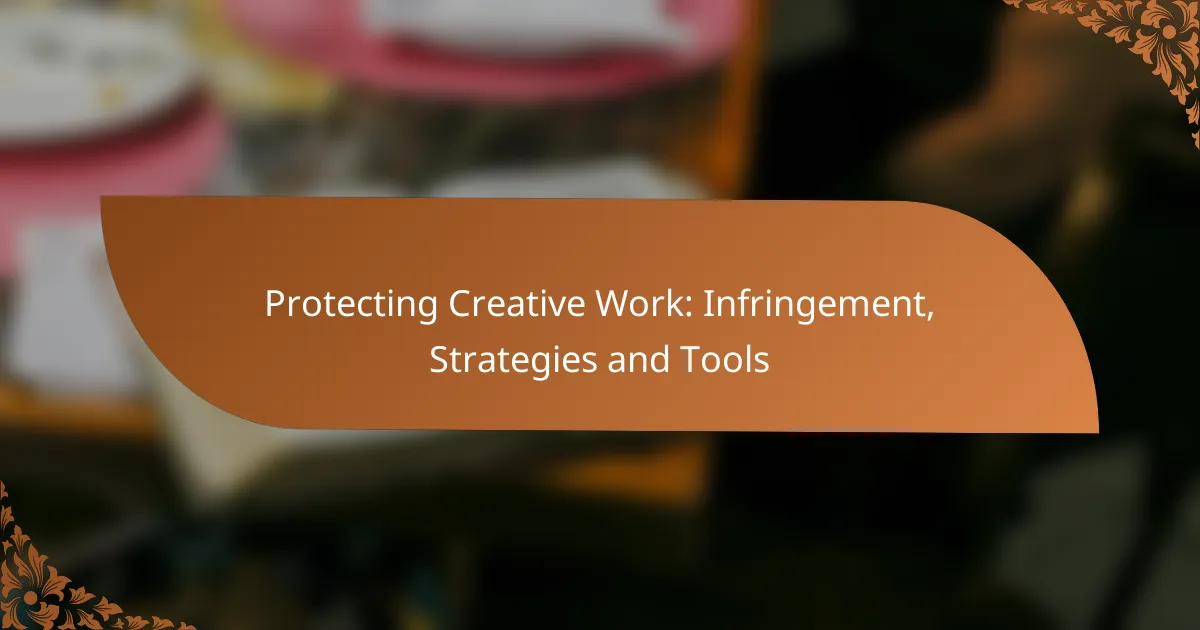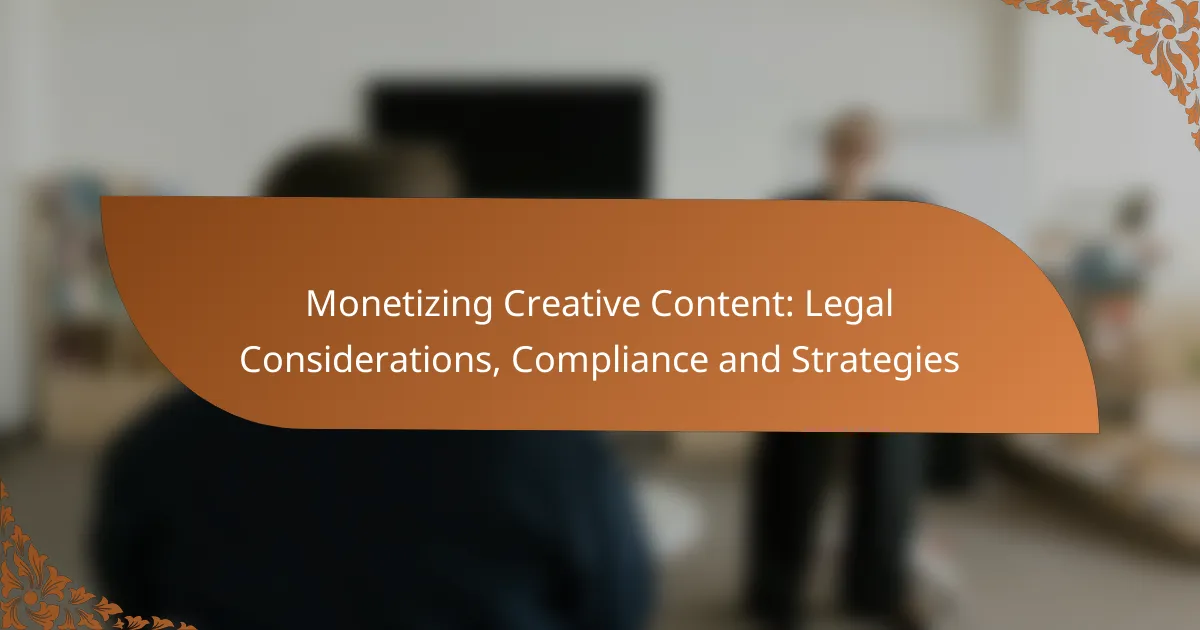Handling copyright claims requires a careful assessment of the situation and timely action to protect your rights. By understanding your rights and preparing a well-documented response, you can navigate disputes effectively. Additionally, implementing best practices such as creating original content and educating your team can help prevent future copyright issues.
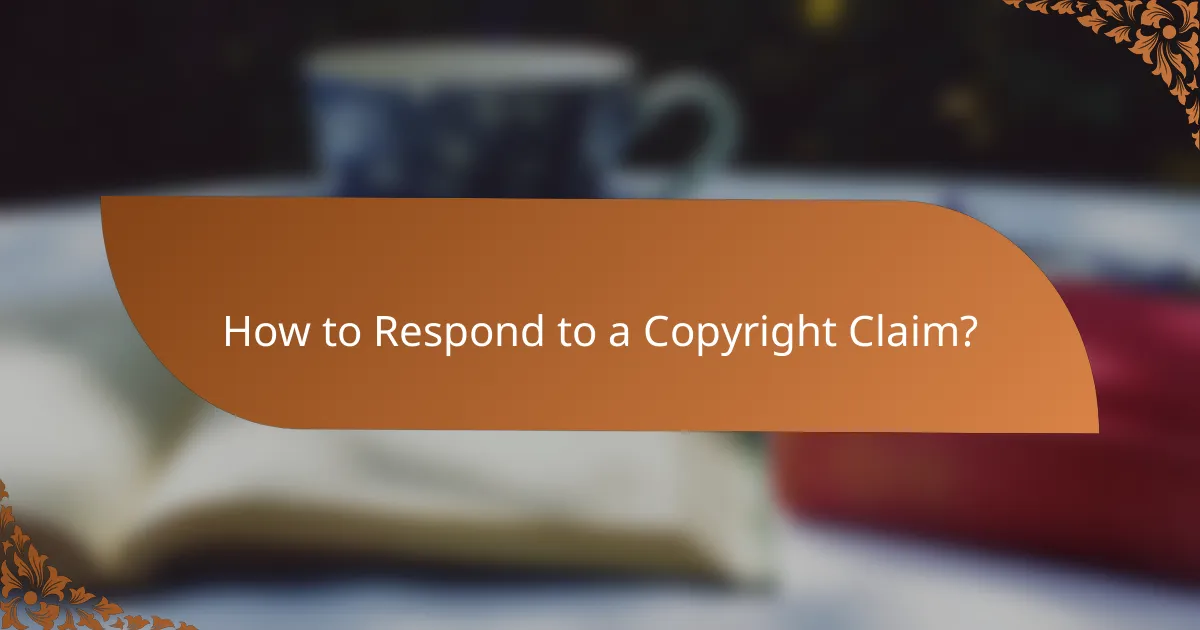
How to Respond to a Copyright Claim?
To respond to a copyright claim, you must carefully assess the situation and take appropriate action within a specified timeframe. Understanding the claim and preparing a well-documented response can help protect your rights and interests.
Review the claim details
Begin by thoroughly examining the copyright claim you received. Look for specifics such as the work in question, the nature of the infringement, and the claimant’s contact information. This information is crucial for determining the validity of the claim and your next steps.
Check if the claim includes a deadline for your response. Many claims require action within a certain period, often ranging from a few days to a couple of weeks. Missing this deadline can limit your options for addressing the claim.
Gather supporting documentation
Collect all relevant documentation that supports your position. This may include proof of ownership, licenses, or any correspondence related to the use of the copyrighted material. If you believe your use falls under fair use, gather evidence that supports this argument.
Organize your documents clearly, as this will facilitate a more effective response. Consider creating a checklist to ensure you have all necessary materials, such as contracts, emails, or usage records.
Draft a response
When drafting your response, be clear and concise. Address the specific claims made against you and provide your evidence in a logical manner. If you believe the claim is unfounded, explain why, referencing your gathered documentation.
Maintain a professional tone throughout your response. Avoid emotional language or personal attacks, as this can detract from your argument and may escalate the situation unnecessarily.
Submit your response
Once your response is complete, submit it according to the instructions provided in the claim. This may involve sending an email, using a specific online portal, or mailing a physical letter. Ensure you keep a copy of your response for your records.
Follow up if you do not receive a confirmation of receipt within a reasonable timeframe. This can help ensure that your response has been acknowledged and is being processed.
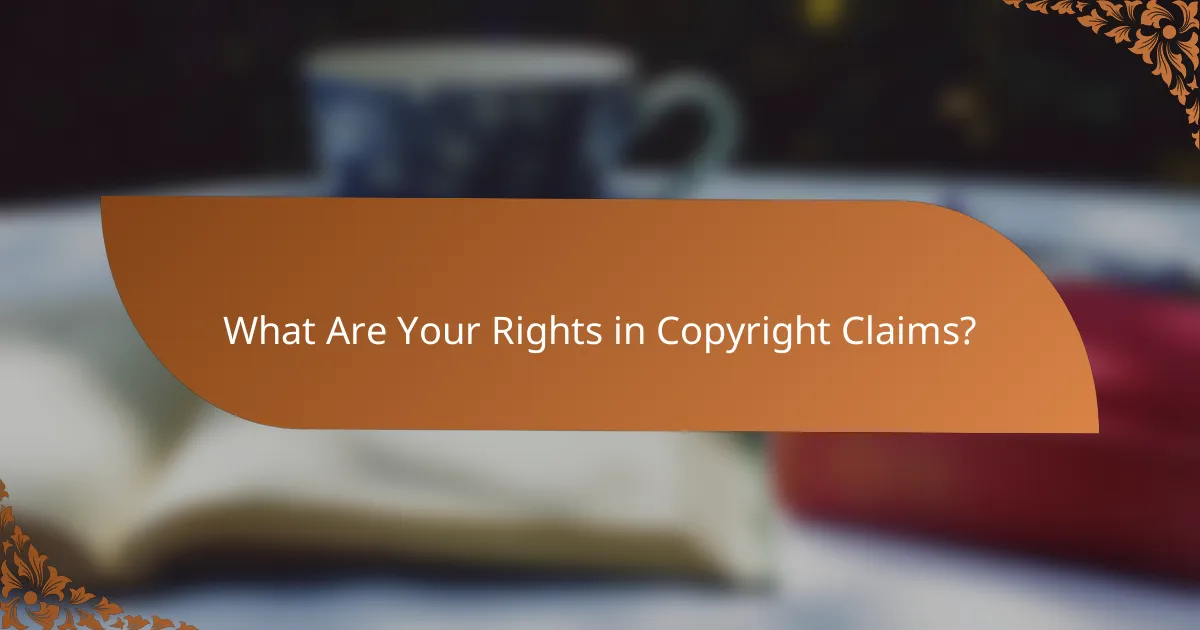
What Are Your Rights in Copyright Claims?
In copyright claims, you have several rights that protect your interests and allow you to respond appropriately. Understanding these rights can help you navigate disputes effectively and ensure you are treated fairly under the law.
Right to contest the claim
You have the right to contest any copyright claim that you believe is unfounded or incorrect. This involves formally responding to the claim, often through a counter-notice if the claim was made through a platform that allows for such a process.
When contesting a claim, gather evidence to support your position, such as proof of ownership or documentation demonstrating fair use. Be aware of the deadlines for responding, as failing to act promptly can result in the claim being upheld.
Right to fair use
The right to fair use allows you to use copyrighted material without permission under certain circumstances. This typically applies to uses for criticism, comment, news reporting, teaching, scholarship, or research.
To determine if your use qualifies as fair use, consider factors such as the purpose of your use, the nature of the copyrighted work, the amount used, and the effect on the market value of the original work. Fair use is often a gray area, so it’s wise to evaluate your situation carefully.
Right to seek legal counsel
You have the right to seek legal counsel when dealing with copyright claims. Consulting with an attorney who specializes in intellectual property can provide you with tailored advice and help you understand your options.
Legal counsel can assist you in drafting responses, negotiating settlements, or representing you in court if necessary. Investing in legal advice can save you time and resources, especially if the claim escalates.
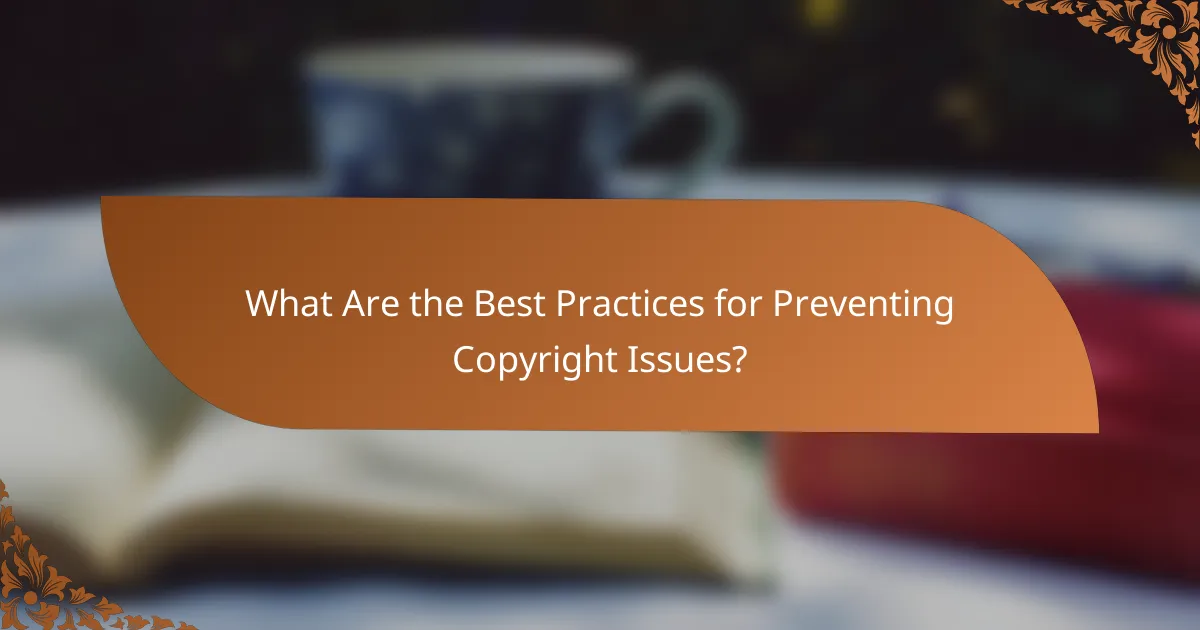
What Are the Best Practices for Preventing Copyright Issues?
To prevent copyright issues, focus on creating original content, using copyright notices, and educating your team about copyright laws and practices. These strategies help safeguard your work and reduce the risk of infringement claims.
Use original content
Creating original content is the most effective way to avoid copyright issues. This means producing unique text, images, videos, and other media that are not derived from existing works. When developing content, ensure that it reflects your brand’s voice and perspective, which can help distinguish it from others.
Consider conducting research and brainstorming sessions to generate fresh ideas. Utilizing tools that check for plagiarism can also help ensure that your content is genuinely original. Regularly updating your content can keep it relevant and unique over time.
Implement copyright notices
Adding copyright notices to your work is a simple yet powerful way to assert your rights. A copyright notice typically includes the © symbol, the year of publication, and the name of the copyright owner. For example, © 2023 Your Company Name. This informs others that the content is protected and discourages unauthorized use.
While copyright notices are not legally required, they serve as a clear reminder of ownership. Including them on all published materials, including websites, brochures, and social media posts, can enhance your legal standing in case of disputes.
Educate your team
Training your team about copyright laws and best practices is crucial in preventing infringement. Regular workshops or seminars can help employees understand the importance of respecting intellectual property and the potential consequences of copyright violations.
Provide resources that outline copyright basics, including what constitutes fair use and how to properly attribute sources. Encourage open discussions about copyright issues and establish clear guidelines for content creation and sharing within your organization.
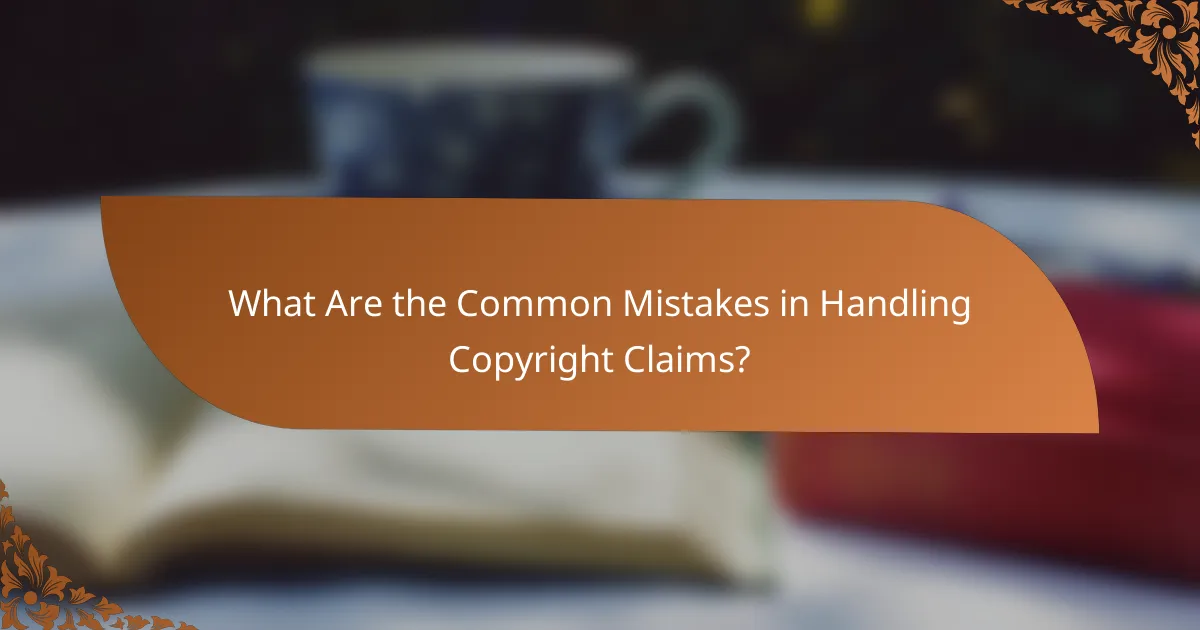
What Are the Common Mistakes in Handling Copyright Claims?
Common mistakes in handling copyright claims can lead to legal complications and financial losses. Key errors include ignoring the claim, failing to document communications, and not seeking legal advice.
Ignoring the claim
Ignoring a copyright claim can escalate the situation, potentially resulting in legal action or financial penalties. It’s crucial to acknowledge any claim promptly and assess its validity before deciding on a course of action.
Failure to respond may lead to default judgments against you, which can be costly. Always take claims seriously and consider them a priority in your business operations.
Failing to document communications
Not documenting communications related to copyright claims can hinder your ability to defend yourself effectively. Keep detailed records of all correspondence, including emails, letters, and phone calls, to establish a clear timeline and context.
Effective documentation can also help in negotiations or legal proceedings, providing evidence of your actions and responses. Use a consistent format for tracking communications to ensure nothing is overlooked.
Not seeking legal advice
Neglecting to seek legal advice when facing a copyright claim can result in poor decision-making. Legal professionals can provide guidance on the validity of the claim and recommend appropriate responses.
Consulting with an attorney experienced in copyright law can help you understand your rights and obligations, potentially saving you from costly mistakes. Consider budgeting for legal counsel as a part of your risk management strategy.
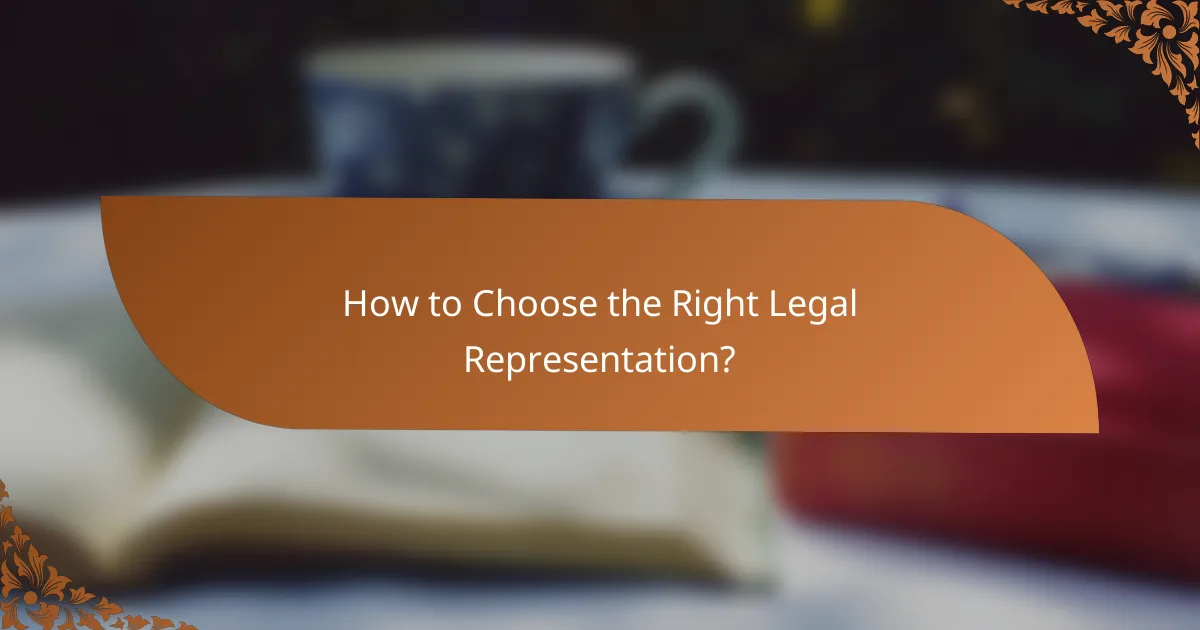
How to Choose the Right Legal Representation?
Choosing the right legal representation for copyright claims is crucial for effectively navigating the complexities of intellectual property law. Focus on finding an attorney with relevant experience, a solid reputation, and transparent fee structures to ensure your rights are well-protected.
Look for copyright specialists
When selecting legal representation, prioritize attorneys who specialize in copyright law. These professionals possess in-depth knowledge of copyright regulations and can provide tailored advice based on your specific situation.
Specialists are often familiar with the nuances of copyright claims, which can vary significantly across different jurisdictions. They can help you understand your rights and the best strategies for defending your work.
Check reviews and testimonials
Researching reviews and testimonials can provide insight into an attorney’s track record and client satisfaction. Look for feedback on their ability to handle copyright cases effectively and their communication style.
Consider reaching out to former clients for firsthand accounts of their experiences. This can help you gauge how well the attorney navigates the legal process and advocates for their clients.
Evaluate fee structures
Understanding an attorney’s fee structure is essential before making a decision. Some may charge hourly rates, while others might offer flat fees or contingency arrangements based on the outcome of the case.
Compare fee structures among potential representatives to find one that aligns with your budget. Be wary of hidden costs and ensure you have a clear understanding of what services are included in the fees.
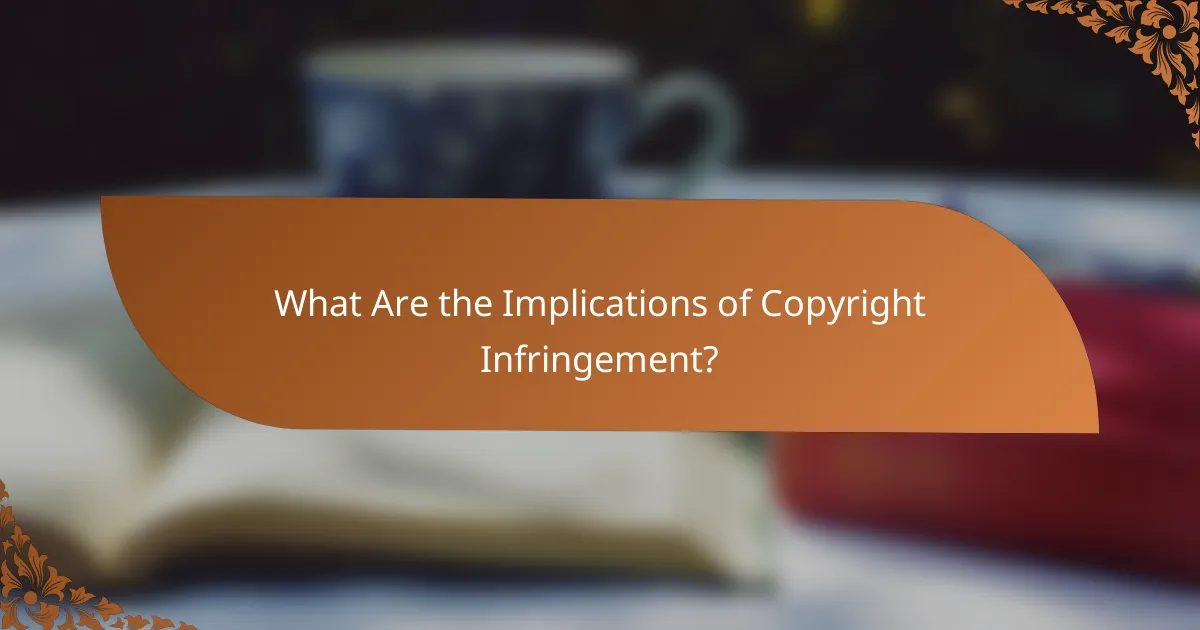
What Are the Implications of Copyright Infringement?
Copyright infringement can lead to significant legal and financial consequences for individuals and businesses. Understanding these implications is crucial to avoid costly disputes and protect intellectual property rights.
Potential financial penalties
Financial penalties for copyright infringement can vary widely, often ranging from hundreds to millions of dollars depending on the severity of the violation and the jurisdiction. In the United States, statutory damages can be awarded, which may range from $750 to $30,000 per work infringed, and up to $150,000 for willful infringement.
In addition to statutory damages, infringers may also be liable for actual damages, which can include lost profits for the copyright holder. Legal fees can further escalate costs, making it essential to seek legal advice if facing a claim.
Loss of business reputation
Infringing on copyright can severely damage a business’s reputation, leading to loss of customer trust and potential partnerships. Companies known for copyright violations may find it challenging to attract new clients or retain existing ones, as consumers increasingly value ethical practices.
Moreover, negative publicity from copyright disputes can have long-lasting effects. Businesses should prioritize compliance with copyright laws and consider implementing robust training programs for employees to mitigate risks associated with infringement.
